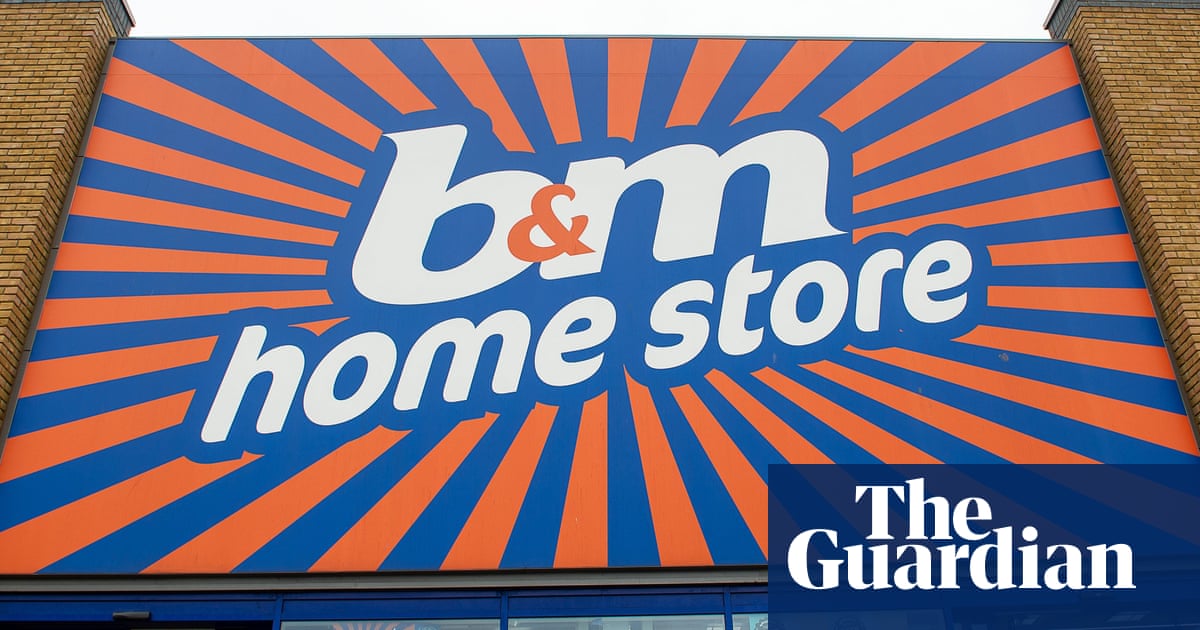One of Britain’s biggest discount retailers has blamed a slide in sales and profits on lower-income consumers missing out on wage rises.
B&M, which issued a profit warning in February, said consumers had been more cautious about their spending over the past year.
It added that its sales had fallen because of “limited real wage growth”, particularly among its “core lower-income consumer groups” who had previously receivedemergency cost of living support payments, which ended in February 2024.
The retailer, which sells everything from cleaning products and pet food to garden furniture and inflatable hot tubs, said comparable sales at its 740-plus UK stores decreased by 3.1% in the 12 months to the end of March.
Pre-tax profit fell by 13.2% to £431m as a result of higher depreciation and increased interest costs as well as the “challenging UK retail trading environment”, B&M said.
Shares in the company dropped by as much as 7% during morning trading on Wednesday after the results, as it admitted its “operational execution could have been better”.
The UK’s largest bakery chain,Greggs, said in May its sales of iced drinks and snackswere on the rise, even as consumers remained cautious. It added that it was benefiting from the rise in consumers’ disposable income, helped by the April increase in the legal minimum wage.
Average wagesacross the economyincreased by 6.4% in the year to April, according to the most recent official payroll data from theOffice for National Statistics, at a time when inflation was 3.5%.
Meanwhile, hotels and restaurant staff managed to secure an 8.5% increase in median pay over the year to April, according to the ONS, while retail workers were paid 6.9% more over the same period.
Recentpublic sector pay awardswere also higher than ministers had previously said the government could afford.
B&M should have been winning over new customers amid a squeeze on consumers’ finances, according to Russ Mould, the investment director at the broker AJ Bell.
“The discount retailer blamed challenging market conditions, yet its value-led business model should have thrived in a period where consumers were watching their pennies,” Mould said.
“It should have mopped up extra business from people trading down from more expensive options, while also being a shop of choice for cash-strapped individuals wanting bargains.”
Sign up toBusiness Today
Get set for the working day – we'll point you to all the business news and analysis you need every morning
after newsletter promotion
Among the bargain-lovers known to shop at B&M are the former prime minister Boris Johnson and his wife, Carrie, who recently revealed on social media they had taken their new babyto their “favourite shop”.
B&M has been led by its finance director since the departure of its chief executive, Alex Russo, in April. Russo’s successor, Tjeerd Jegen,will take the helm in mid-June.
Meanwhile, the retailer WH Smith, which isdue to disappear from British high streetsin the coming weeks, reported a 7% increase in sales at its travel shops in railway stations, airports and hospitals in the 13 weeks to the end of May.
The company, which agreed to sell its 480 high street stores in March to the Hobbycraft owner, Modella Capital, in a deal worth £76m, said it expected to complete the sale at the end of June.
WH Smith said its remaining travel business was on track to meet its full-year financial targets, and said it was “well positioned as we enter our peak summer trading period”.
